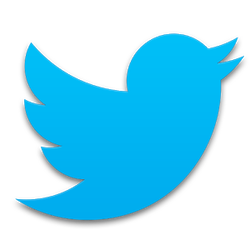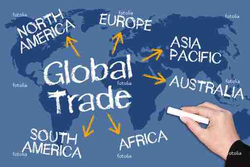 By Mel Brooks As active managers of our clients’ social media accounts, we have looked at over a thousand small and medium sized business (SMME) Twitter accounts. And we have noticed that although these accounts have been opened, it is clear that most have become dormant: if you have not tweeted in three months you are effectively not on Twitter. In fact, if you have not tweeted in a week, you may as well not be using the medium. There are, however, some SMMEs that do tweet – but this is often what happens:
- Tweet schedulers that mindlessly pump out commercial messages have been set up. Many of these will not inspire potential customers to follow a link or make contact. Few, if any, other messages that contain useful content is ever tweeted. SMMEs are attracted to Twitter because it is free, and then the social-media box can be ticked. However, the production of good content is not free: it is time consuming and labour intensive to be produced in-house. An alternative is to outsource the provision of content. Enter the “digital” agency. The production of content is often outsourced to entities where a “techie” is tasked with the job – someone who knows the medium rather than the client’s business. But, the production of quality content requires a knowledge of the business itself and the industry in which it operates, in addition to marketing and advertising. These then need to be packaged via excellent writing skills. At Cambial Communications, we have seen that good content can make a big difference (See: Social media, content is king). Here are three examples: Client A This twitter account was run by a digital agency from October 2011 to January 2013. Over the 16 months, the number of followers had grown to 620. After taking over the account in February 2013, we had grown the following to over 6,500 in only eight months. There is a high level of the useful-content tweets in addition to promotional tweets. Enquiries are regularly received in addition to the interaction which takes place. This client’s Klout score is consistently higher than that of its competitors. For this client we adopt a “follow-back” policy (see: To follow back or not? That is an important question)which has contributed to the high level of interaction of its followers who feel they are being listened to and also accounts for the high level of retweets received. Client B This client is a professional consultancy which is owner managed. The production of content was not a problem but time was. A short-term intervention was needed to grow the follower base and provide assistance with content. As a result the number of followers grew from 227 to over 9,500 in a five-month period. Client C We acquired this new client with less than 200 followers and we doubled the following in the first three days. However, growing followers for this client will take time as it has specific requirements for its follower base: they need to be either potential clients, or those that offer a route to reach potential clients. The point is that obtaining masses of followers is not an end in itself – one needs appropriate followers. In each instance, we have grown the following organically: we are strictly opposed to the buying of followers. Businesses should be on Twitter to establish and grow their brands in the social-media area, to listen to their market and, more importantly to generate revenue. It is also important to note that managing a Twitter account is not simply a case of chasing followers, far more important is the quality of those followers, their level of influence and the extent of interaction and engagement generated. Getting assistance to able you to get the maximum benefit from your social media activities is a challenging task – but the getting right assistance will produce benefits well in excess of the fees involved. Do you have any stories to share of wasted opportunities on Twitter accounts? We'd love to hear them ********************************* Please follow us on Twitter to receive more information.
2 Comments
 By Mel Brooks If you’re on Twitter purely in your personal capacity and for fun, the above question is irrelevant. Your personal “follow back” policy is entirely your choice. For businesses, though, the matter is entirely different. Most businesses, particularly large companies, do not follow back those who follow them. This represents a wasted opportunity – the opportunity to listen to the market. Much is made by marketing specialists of the need to listen to customers. While following back thousands of followers may seem to be unnecessary as it is impossible to read all the tweets on a timeline, it is possible to view a sample of tweets regularly. In so doing, it is then possible to get a feel for the market. It is also important to understand that by following back one is showing respect to customers. The effect that this could have is an important consideration. By following existing and potential customers, an organisation is saying: “We value you; we want to hear you; you are important to us”. Frankly, it can be construed as arrogant not to return a follow. Large corporates are also largely guilty of tweeting a constant stream of commercial messages about their products. Who would listen to a radio station that broadcasts only commercials? In this regard read: Social Media: Content is King. Tweet-schedulers also need to be used with caution. Their use can be obvious to followers and they risk removing the “social”’ element from social media. While they represent an opportunity for cost reduction and assist enormously in managing the time-consuming aspect of running an effective Twitter account, they can reduce the effectiveness of the medium. To get a return it is always best to apply real resources to the medium. Twitter is about relationships and we all know that, to succeed, relationships take real work. A South African business that is getting this right is Nedbank. Not only does the company follow back its followers, but it is responsive and interactive too. You should never remove the human element of social media. What are your thoughts on following back Twitter followers? Do you like it when someone follows you or follows you back?  An economy is called “open” if it conducts a significant amount of business (trade) with other countries – and this trade can be in physical goods or services. There is a popular misconception that by reducing imports and supporting local production, jobs will be created locally, thus increasing a country’s economy, as measured by gross domestic product (GDP). But such a policy would only lead to a downward spiral in the economy – we only have to look at the crushing impact of sanctions on the South African economy in the late 1980s and early 1990s when the country suffered a protracted recession, declining by more than 3% (annualised) at one stage. To get an idea of the impact of economic isolation, let’s take an extreme example: let’s imagine an economy of one person. Imagine that each individual opted to produce everything they required entirely by themselves. This would include producing one’s own food, the utensils to cook that food, the stove on which to cook it, and so on. Imagine having to produce your own clothing, your own car, your own home, your own medication – anything at all that you require to enjoy the lifestyle that you do. Clearly, we would spend most of our days just producing the basics for survival – and we would have an appalling standard of living and a dismal lifestyle. Thank goodness we don’t have to do that. Rather, we each specialise in producing something that we are good at and that is reflected in the salary that we earn – so we seek out the best salary that we can get. We then engage in trade as an individual – we sell our skills and we use the income to buy those things that we can’t produce as efficiently. The larger the base within which we can trade, the greater the choice of goods and services we have available to purchase – and the better their prices. The larger the base within which we can sell our services (as a human resource) the better the price (salary/wages) we can get for our efforts. Now let’s look at this from the point of view of a country. The more that a country trades with other nations, the GREATER the standard of living it can enjoy. By focusing on producing what it can produce more efficiently than other countries, and then trading with other states, everybody can be better off. China has proved this by becoming a manufacturing hub. Since liberalizing its economy in the late 1970s, the Chinese economy has enjoyed one on the most spectacular and enviable increases, taking the nation from the low-income category to its current middle-income status. India has become a significant developer of software, taking that country into increasingly higher salary bands. South Africa has exceptional capabilities in several areas and it is these which we need to develop and exploit as much as possible. This will provide the necessary income to import those things which we cannot manufacture as competitively and, thus, benefit from having more. Some of the areas where I think we should focus on are tourism in general, but also medical and sports tourism, the film industry and call-centre services. There is also need no reason why South Africa should not become the Financial-Services hub of Africa. The same applies to aviation maintenance and repair services. What industries do you think South Africa should opt to build and develop? |
Hot off the press
Economist, data translator, communicator and fascinated by the world around us. Archives
December 2023
Categories
All
|
 RSS Feed
RSS Feed